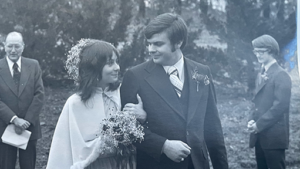I like social media.
It helps me keep track of people, of which through my own fault I suppose I wouldn’t know what they were doing or where they were doing it if I didn’t have access to Facebook.
I also like the internet. It’s unbelievable. It’s like having the library and all the smartest people you know at your typing fingertips.
But. And you knew there would be a but.
The fact that we can access millions of people with a keystroke has unprecedented power. And this bears directly on this whole concept of re-tweets and shares and media sound bytes and 24 news and what that means. Especially if you want to know what is merely common as opposed trustworthy and true.
Let me explain a bit better.
There are two pertinent facts to my mind.
The first one is that anyone can publish anything on the internet and nothing about posting it will require proof, vetting or verification. I know everyone says this, but just take a minute and let that soak in.
Let that soak in.
Anyone can post anything.
Even the television, radio, and newspapers are impacted or at least responsive to the whims and whiles of internet publications and postings.
The second thing is something you probably don’t think is true, but it is. As humans we still hold respect for public declaration no matter who or where it comes from. We can’t really imagine anyone putting something in the public arena that isn’t true. I know. You’d think we wouldn’t be that innocent or gullible. But you know what, we are. Especially if its something we suspect is true. Or want to be true.
So we have a problem.
Because once something gets passed around and starts gaining momentum, another thing that is very human kicks in that has found unprecedented ground in today’s information laden world. The more we see some piece of information re-tweeted or ‘liked’ or mentioned on 24 hours news, the more certain we are that it must be a valid fact or truth. I am using the word common in a different way than normal. Because I think the phenomenon of internet publishing requires we remind ourselves that the number of times we see or hear something does not say anything about it other than it is becoming ‘common’.
Let me give you an example.
I like CBS. I really like Gayle King on the Morning News. She seems to be a fine human being. On the other hand, I couldn’t stand David Letterman and the Late Show. I thought he was kind of funny some years back, but I lost interest in any entertainment value he might have offered long ago. I certainly didn’t consider him anything other than a man hoping to entertain (as opposed to someone who hoped to inform), which I think some people do hope to prosper valid information that are in the media, like Gayle.
At least two weeks, maybe longer, before Letterman left his job, you could not turn on CBS without being inundated with every sort of pandering announcement, tweet, ‘like’ aimed at his impending departure and the loss (or maybe it was his contribution) to American television.
“Whaaatt?” I said to myself.
Had something happened on the Late Show that because I had quit watching, the rest of the world was sad and disappointed that Letterman was leaving? Was he way more popular and wise and funny than I knew? Somehow in this world of rapid information had I failed to realize his importance? I thought the up and coming star was Colbert. Clearly that guy is intelligent regardless of whether you like his politics or not. Where were the re-tweets and likes that would have keyed me into Letterman’s worth?
“I’m going to look at his ratings,” I said, and I immediately Googled.

I’m just going to say. I thought it was downright disingenuous for CBS to make me think that Letterman was popular. They tried to do it by making his name so common the two weeks before he left that I would be convinced of his importance. (Either that or that was a polite, gentle get-out-the-door Letterman, you are way too old and unfunny so we will stroke your ego.)
Don’t get me wrong. I wish the man well in his retirement. But there are a whole lot more people that I might be more willing to spend lots of time considering their impact and difference making history than Letterman. There are a lot more people who are more worthy of the extraordinary amount of attention allotted to Letterman’s leaving.
We have to be careful. And diligent. And discerning. It’s a brave new world.
Do not believe everything you hear or read or see, no matter how often you hear, read or see it.
It’s much better to put your stakes on what is trustworthy and true. Common can have absolutely no value in internet terms.





4 Responses
The only reason I can see to be sorry Letterman left is because of who the successor is
Amen, girlfriend! We’ve become a bunch if jelly-brained idiots! No one botheres to research anymore. 🙁
And here I thought I was the only person who couldn’t stand Letterman, and the pre-departure hype by the network and other media certainly reinforced that notion.
IMHO, David Letterman has been unfunny since, well the beginning of ‘The Late Show With David Letterman’. Jay Leno added value to late night; Letterman not so much.